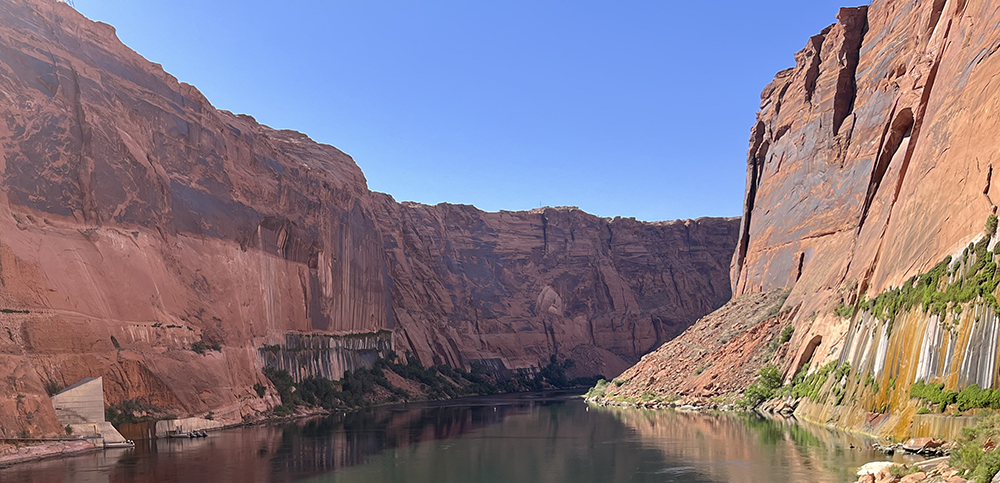 Below Glen Canyon Dam
Below Glen Canyon Dam
SALT LAKE CITY – Lower water levels at Lake Powell and rising temperatures in the Colorado River are contributing to dangerously low dissolved oxygen levels below Glen Canyon Dam, causing concern for the health of the trout fishery located near Lees Ferry. The Bureau of Reclamation works with the U.S. Geological Survey to closely monitor water quality conditions and is working with partners and stakeholders to better understand potential effects.
Fish native to the Colorado River, such as humpback chub and razorback sucker, are generally located farther downstream where low dissolved oxygen levels are remedied by riffles and runs, which aerate the water. The poor water quality just below the dam is adversely impacting only the rainbow trout population located in that area.
“Reclamation’s water quality forecasts suggested that there was potential for reaching low dissolved oxygen levels below the dam this year, but we didn’t anticipate it happening until early autumn,” said Reclamation fish biologist Clarence Fullard.
Reduced oxygen in the water causes stress, increases metabolic rates and ultimately can result in fish kills or fish moving downstream to seek refuge in cooler, more oxygen-rich river habitats. Reclamation and its partners continue to closely monitor temperature, dissolved oxygen levels and fish health in the area.
This is not the only fish-related challenge facing this stretch of the Colorado River. Earlier this summer, juvenile smallmouth bass, a predatory, non-native fish, were found in the river approximately two miles below the dam.
Prolonged drought and low runoff conditions accelerated by climate change, including extreme heat and low precipitation, have led to historically low water levels in Lake Powell and have worsened ecosystem disruption in the river downstream of Glen Canyon Dam. Over the last two decades, Department leaders have engaged with Colorado River Basin partners on various drought response operations, however, given that water levels continue to decline, additional action is needed. Earlier this month, the 2023 Colorado River water operations were announced, including reduced releases from Lake Powell and additional shortage declarations down river for Lake Mead, demonstrating the severity of the drought and critically low reservoirs.
For more information about dissolved oxygen and how it negatively affects fish populations, visit https://www.usgs.gov/special-topics/water-science-school/science/dissolved-oxygen-and-water.
For more information on current news topics about the Colorado River Basin, follow us on Facebook.


